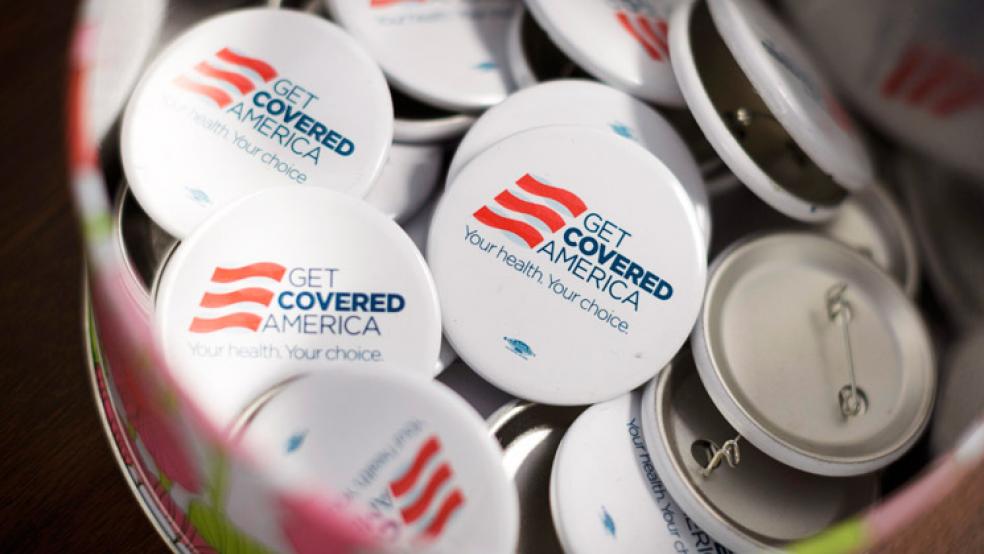In the wake of Aetna’s recent announcement that it was pulling up stakes in 11 of 15 states where it had been selling insurance on Obamacare exchanges, there are more alarming signs that other major insurers are struggling to remain in the game.
On Tuesday, three of the major players in Tennessee — Cigna Health Insurance, Humana and Blue Cross Blue Shield — were granted huge double-digit premium increases for the 2017 season beginning in January amid a warning from the state’s insurance commissioner that the Obamacare markets were “very near collapse.”
Related: Obamacare Suffers Another Big Blow as Aetna Pulls Out of 11 Markets
While Tennessee residents suffered Obamacare premium sticker shock this year, with increases as high as 36 percent, those rates will pale by comparison to those that received final state approval for the coming year: BlueCross BlueShield of Tennessee was granted a jaw-dropping 62 percent average increase; Cigna was given a 46 percent average increase and Humana was granted a 44.3 percent average increase.
The premium rate hikes were substantially revised upward for Cigna and Humana after company officials realized they had vastly underestimated their costs for the coming year in providing health care coverage to hundreds of thousands of low-income beneficiaries, many of them with costly medical and prescription drug needs.
Julie Mix McPeak, commissioner of Tennessee’s Department of Commerce and Insurance who signed off on the steep premium hikes, cautioned that Blue Cross-Blue Shield is the only major insurer still committed to selling individual policies in the government-subsidized statewide markets. By contrast, Cigna and Humana are threatening to reduce their footprints or withdraw from the market altogether, she said.
“I would characterize the exchange market in Tennessee as very near collapse ... and that all of our efforts are really focused on making sure we have as many [insurance policy] writers in the area as possible,” McPeak told The Tennessean newspaper. “I’m doing everything I can to prevent a situation where that turns to zero.”
Related: Obamacare Insurers Are Looking for a Taxpayer Bailout
The three major insurers are feeling many of the same pressures as Aetna and UnitedHealthcare, which have lost hundreds of millions of dollars in recent years in coming to grips with a pool of health care beneficiaries skewed heavily toward older, sicker Americans who are more expensive to cover, as well as inadequate government support to cover unexpected financial losses.
Blue Cross Blue Shield of Tennessee, which sold health insurance policies statewide during the first three years of Obamacare, has estimated that by the end of this year it will have lost nearly $500 million — losses that the company says are not sustainable.
“I don’t think there’s any question that in certain market areas, we’ve reached a point where the Affordable Care Act’s exchanges are not working, period,” G. William Hoagland, vice president of the Bipartisan Policy Center, said in an interview on Wednesday. Hoagland, a former executive of Cigna, said he was surprised by the size of the rate increases in Tennessee, and predicted they would cause hardships, especially among lower income residents in more rural areas of the state.
“I just think this has always been a very difficult market, and these large insurers are finding out now that they just can’t produce the product in those markets without extremely high premiums,” he said.
Hoagland added that the insurers’ requests for rate increases as high as 62 percent were tantamount to “those companies simply saying we can’t realistically offer plans that are required to meet the ACA standards ... and just admitting that this is not a market they can participate in.”
Related: With Aetna Pulling Out, Can Anything Save Obamacare?
The sharp increase in premiums for the coming year are only part of the equation, assuming they receive final approval from the U.S. Department of Health and Human Services. Millions of Americans who will seek coverage for the coming year will qualify for federal tax subsidies that will substantially reduce their costs. However, depending on the type of policy they ultimately purchase, consumers could be nicked by higher deductibles, co-payments and other out-of-pocket costs.
Last month, the Kaiser Family Foundation released an analysis forecasting that rate hikes in 2017 will be greater than previous years. Based on preliminary insurer rate requests, the study found that the cost of the second-lowest silver plans in 16 cities and the District of Columbia will increase by an average of 9 percent. Last year, premiums for the highly popular silver plans increased 2 percent in these areas.





